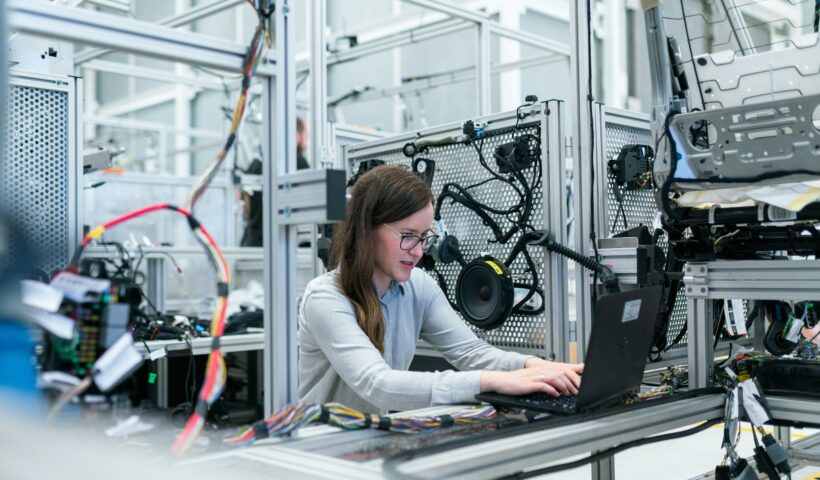Four years ago, the game developers behind the hit game Borderlands 3 and McGill University partnered to create Borderlands Science, a minigame that gamers would complete to help researchers categorize DNA sequences from microbes found in the human gut. While the project was initially met with skepticism, it has since proven to be extremely successful. Over 4.5 million people have contributed to scientific research through the video game. Borderlands Science establishes an important precedent for the role video games can have in scientific research and social good.
View More Video Game Potential for Social GoodAuthor: Jennah Saqib
Sex-Based Bias in Medical Research is Dangerous
Women have historically been underrepresented in Phase I and II clinical trials, including areas of research such as Alzheimer’s and autoimmune diseases in which women are more affected. This results in drugs being tailored for men, which leads to a higher rate of women experiencing adverse effects of these drugs than men. Medical testing needs to involve women at every stage to prevent these inequalities from occurring and to prioritize women’s health.
View More Sex-Based Bias in Medical Research is DangerousHistory’s Forgotten Women in STEM
February 11 was the UN’s International Day of Women and Girls in Science. Today, women comprise only approximately 28 percent of the world’s STEM workforce. Historically, women have been barred from pursuing careers in science, and those passionate enough to do so anyway were often overlooked and ignored in favor of their male counterparts. This article shines a light on some of the forgotten women who achieved significant breakthroughs in their field.
View More History’s Forgotten Women in STEMConsciousness and the Self: A Philosophical Discussion of the Future of Whole Brain Emulation
Whole brain emulation is the theory that brain scans can be used to simulate the human mind digitally. It is primarily being researched to improve understanding of the brain to treat or cure neurological illnesses and conditions. However, the concept of whole brain emulation raises ethical and philosophical questions about what it means to be human and the future of humanity. This paper explores different schools of thought on the ideas of consciousness and how they can be applied to the concept of brain simulation and ethical research practices.
View More Consciousness and the Self: A Philosophical Discussion of the Future of Whole Brain EmulationControversy at the COP28 Summit
The annual United Nations Climate Change Conference has started with a bang. Comments made before the summit by the event president, Sultan Ahmed al Jaber, were met with scathing criticism. Al Jaber, who went on the record claiming the phase-out of fossil fuels is an alarmist idea not rooted in science, has since been slammed by other attendees for being biased toward fossil fuel and oil companies. Despite the president’s reluctance, a call for the complete removal of the fossil fuel industry continues to be a major focus point of the conference.
View More Controversy at the COP28 SummitThe Benefits of Scientific Controversy
Timothy Nash recently brought a two-million-year-old fossil on a commercial voyage aboard Virgin Galactic’s V.S.S. Unity. The purpose was to symbolize how far humanity has come, though many scientists disagree with this stunt, stating the venture to be “unethical” and “reckless”. However, the resulting controversy has led to a great deal of public interest in the Cradle of Humankind, benefitting future research ventures through additional economic support.
View More The Benefits of Scientific ControversyThe Role of Bias in Scientific Research
The world is buzzing once again with supposed evidence of alien life. While under oath, Jaime Mausson presented two bodies he claims are of extraterrestrial origin to the Mexican Congress. However, experts are skeptical of his findings, claiming they have no real scientific basis. This case brings to question the role of bias in scientific research and how the resulting spread of misinformation can cross the line into becoming harmful.
View More The Role of Bias in Scientific ResearchThe Science Behind Christopher Nolan’s Oppenheimer
Christopher Nolan’s latest film Oppenheimer has once again brought the Manhattan Project and the development of the atomic bomb to the forefront of the news. The development of the atomic bomb was a series of discoveries in the field of quantum physics that were driven by the historical events surrounding them. The movie opens a discussion of how morality plays a role in scientific advancement and at what point people are willing to disregard morality for what they believe to be the greater good.
View More The Science Behind Christopher Nolan’s OppenheimerThe Loss of Titan and Remembering Challenger
The tragic loss of the Titan and its passengers has been rippling through the news. The wreckage of the submersible was recovered five days after its initial departure, and the debris suggests the vessel suffered a catastrophic implosion. Concerns over the safety of the Titan have been raised over the past few years, and ultimately, several ethical failures resulted in the loss of the lives of its passengers. This event is unfortunately reminiscent of the Challenger disaster, and showcases how ethical considerations in engineering must be made at every level of a company.
View More The Loss of Titan and Remembering ChallengerHow Technology Affects Sleep Deprivation
In recent decades, insufficient sleep has become a more prevalent health concern. Due to new inventions in technology such as artificial light, the work day has gotten progressively longer and longer. Rather than supporting the body’s circadian rhythm, people rely on caffeine and melatonin to get through the day. College students in particular are at a much higher health risk of sleep deprivation, and new “wakefulness pills” are being abused in place of energy drinks and coffee. However, all of these aids to help relieve the effects of sleep deprivation do not actually target the root of the issue: getting adequate sleep.
View More How Technology Affects Sleep Deprivation









